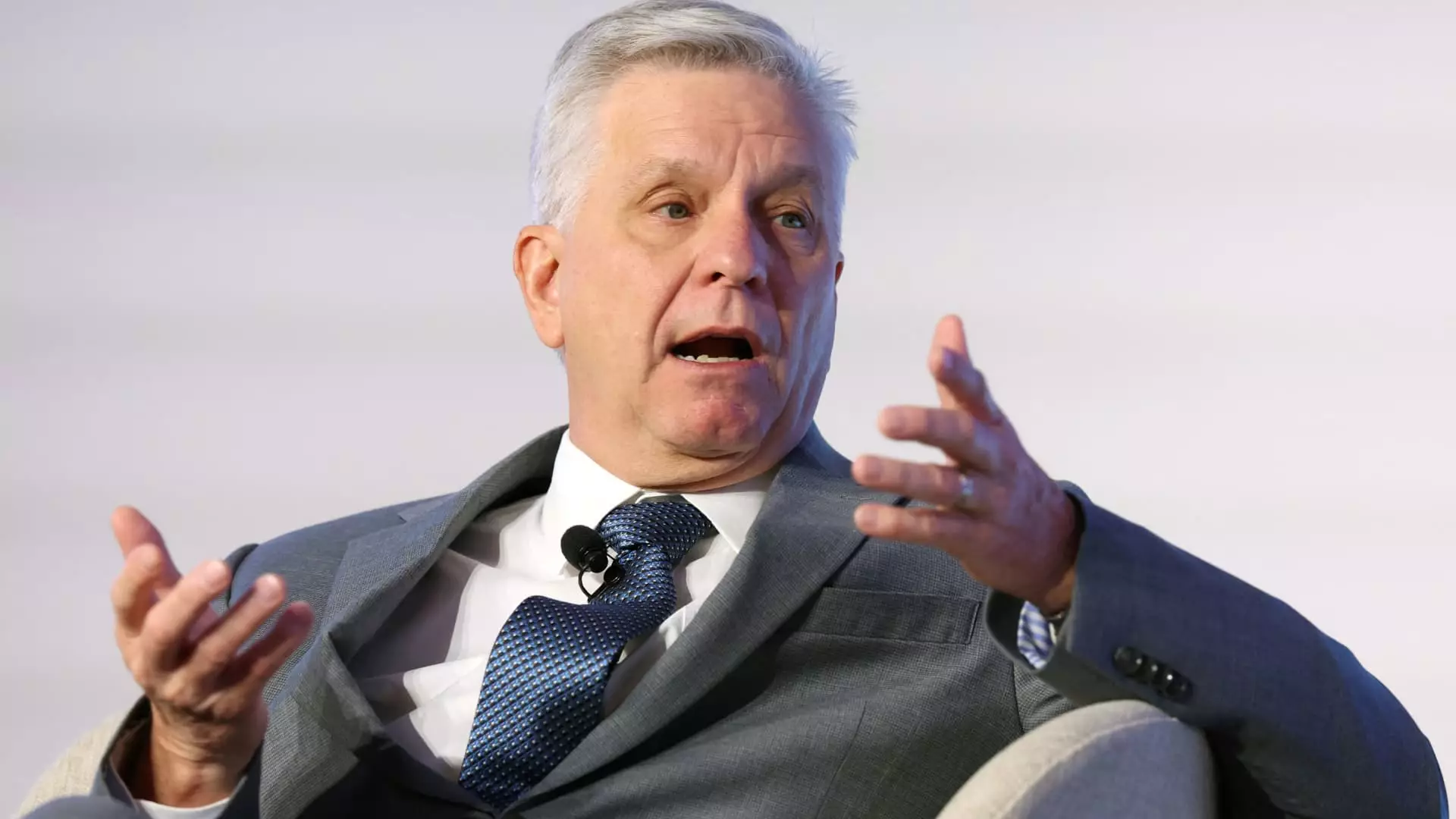In a recent conversation on CNBC, Federal Reserve Governor Christopher Waller stirred the pot by suggesting that lower interest rates could be on the horizon as soon as July. This statement comes after a prolonged period of maintaining rates steady—a period marked by anxieties about inflation and the labor market. Waller’s stance reflects a certain audacity amidst a fluctuating economic landscape, suggesting that the Federal Reserve may have overestimated the potential repercussions of tariffs on inflation. To put it plainly, Waller believes the current economic indicators do not warrant prolonged caution and that it’s time to act decisively, albeit cautiously.
While it’s refreshing to hear a Fed governor advocate for proactive measures, one must consider whether this call represents a well-informed analysis or a dangerously optimistic assumption. The complexities surrounding the impact of tariffs initiated by former President Trump add layers of uncertainty to this discussion. Waller argues that the anticipated inflationary effects of these tariffs have yet to materialize, which raises the question: Are we truly in a stable economic environment, or is there underlying turmoil that we are choosing to ignore?
The Emotional Economic Pendulum: Political Pressures at the Forefront
Word from the White House has amplified the urgency of this discourse. President Trump has not been shy about his desire for lower rates. He has criticized the Fed and its Chair Jerome Powell repeatedly, labeling them “stupid” for not seizing the opportunity to cut rates significantly. Trump’s position is notable—he believes the benchmark rate should be lowered by at least 2 percentage points to stimulate the economy. Such political meddling in monetary policy raises eyebrows and sparks concern. Are we allowing economic pragmatism to be overshadowed by political aspirations?
The reality is that the Fed operates in a symbiotic relationship with broader economic trends. While Waller’s argument for pre-emptive rate cuts may resonate with individuals in corporate boardrooms, the ramifications could be detrimental for everyday Americans. The sentiment that cutting rates will simply ease borrowing costs overlooks the potential for overheating the economy. An impulsive approach could lead to inflation concerns spiraling out of control, pinching consumer budgets and reining in economic growth.
The Crumbling Foundation of Labor Market Confidence
Waller’s emphasis on addressing potential labor market downturns is indeed valid. However, the underlying assumption that we can safely lower rates without a careful analysis of the potential fallout is troubling. The U.S. economy has experienced a transformative shift in the labor market over the past few years, primarily due to the pandemic. Employment numbers may seem robust on the surface, yet beneath the veneer, fears of an impending slowdown loom large.
The Fed’s cautious approach thus far is crucial. The concerns surrounding potential recessionary pressures are not baseless, and a premature decrease in interest rates could magnify these risks. It begs the question of whether Waller, an appointee by Trump, is feeling the political pressure leading to his insistence on rate cuts. Standing at the helm of the Federal Reserve entails a responsibility that goes beyond appeasing the whims of the executive branch; it requires a meticulous assessment of economic fundamentals.
The Uncertainty of Economic Forecasting: A Cautious Path Forward
Experts have long cautioned about the unpredictability of economic forecasting, especially in a time shaped by inconsistent data and shifting consumer behavior. While Waller maintains that recent inflation data show little pass-through effects, the broader economic environment remains riddled with ambiguity. Are we truly insulated from potential external shocks? It is essential for the Federal Reserve to remain vigilant and thoughtful in its approach, resisting the urge to react impulsively to political sentiments or market pressures.
Moreover, the preference for maintaining a wait-and-see approach seems wise in these turbulent times. The value of exercising restraint cannot be overstated, especially when the potential for unforeseen economic disruptions exists. The labor market remains a precarious balancing act, and even a minor slip could trigger larger consequences that resonate throughout the economy.
In navigating this economic labyrinth, the Fed must balance the need for proactive measures with the wisdom of caution. The stakeholders involved have a vested interest in ensuring a healthy economy, but urgent calls for immediate rate reductions should be met with the scrutiny they deserve. Understanding that the interconnected nature of a global economy poses risks far beyond our borders is paramount. While Waller’s boldness is commendable, the Federal Reserve must not shy away from its responsibility to act prudently, whether that means embracing a cut or holding steady in the face of political pressure.

